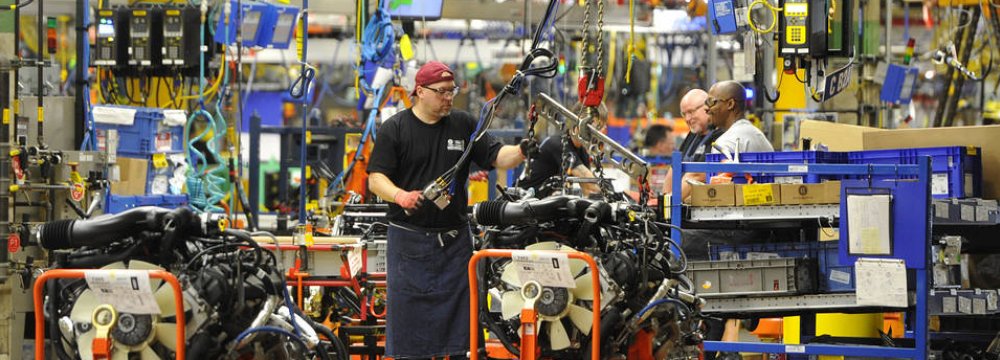
Auto Industry Sees Threat to Jobs and Profits From Trump’s NAFTA Push

The US administration is set to seek an increase in the amount of a vehicle’s components that must come from within the region to qualify for duty-free status under the pact, Bloomberg reported.
But changing the so-called rules of origin would increase manufacturing costs and expose carmakers to new tariffs, leading to higher vehicle prices and lower demand for costly technology and safety features, according to research prepared for the Motor and Equipment Manufacturers Association, the auto suppliers’ trade group.
“Up to 24,000 jobs could be impacted, could be lost actually, if we start increasing the cost of products,” Xavier Mosquet, a senior partner at the Boston Consulting Group, said at a conference for the group, citing an analysis he prepared for it.
The warnings come amid a growing chorus of automotive executives and industry groups warning that the Trump administration’s hard-line stance in talks to renegotiate NAFTA could lead to negative consequences for the sector.
Charles Uthus, vice president for international policy at the American Automotive Policy Council, told the conference that NAFTA has created some $10 billion in annual savings for the auto industry in North America since it took effect. Eliminating those efficiencies would amount to “essentially a $10 billion tax on the auto industry in North America,” he said.
The US had a $64 billion trade deficit with Mexico last year, largely thanks to a trade imbalance in autos. Trump has said reducing trade deficits is the administration’s top priority in the renegotiation of NAFTA; a goal shared by the largest union for US auto workers.
“No amount of spin by corporate lobbyists representing companies who outsource can change the facts on what has happened to workers as a result of NAFTA,” United Auto Workers President Dennis Williams said in a statement. “NAFTA renegotiation will only be successful if it leads to higher wages for workers in all three countries and puts an end to our crippling auto trade deficit with Mexico.”
After repeating threats to exit the accord, Trump on Wednesday would not say how he was leaning on a NAFTA deal as he met with Canadian Prime Minister Justin Trudeau at the White House. Negotiators from Canada, Mexico and the US began the fourth round of talks to revamp the trade pact on Wednesday outside of Washington.


Trump weighs using $2 billion in CHIPS Act funding for critical minerals

Codelco cuts 2025 copper forecast after El Teniente mine collapse

Electra converts debt, launches $30M raise to jumpstart stalled cobalt refinery

Barrick’s Reko Diq in line for $410M ADB backing

Abcourt readies Sleeping Giant mill to pour first gold since 2014

Nevada army depot to serve as base for first US strategic minerals stockpile

SQM boosts lithium supply plans as prices flick higher

Viridis unveils 200Mt initial reserve for Brazil rare earth project

Tailings could meet much of US critical mineral demand – study

Kyrgyzstan kicks off underground gold mining at Kumtor

Kyrgyzstan kicks off underground gold mining at Kumtor

KoBold Metals granted lithium exploration rights in Congo

Freeport Indonesia to wrap up Gresik plant repairs by early September

Energy Fuels soars on Vulcan Elements partnership

Northern Dynasty sticks to proposal in battle to lift Pebble mine veto

Giustra-backed mining firm teams up with informal miners in Colombia

Critical Metals signs agreement to supply rare earth to US government-funded facility

China extends rare earth controls to imported material

Galan Lithium proceeds with $13M financing for Argentina project

Kyrgyzstan kicks off underground gold mining at Kumtor

Freeport Indonesia to wrap up Gresik plant repairs by early September

Energy Fuels soars on Vulcan Elements partnership

Northern Dynasty sticks to proposal in battle to lift Pebble mine veto

Giustra-backed mining firm teams up with informal miners in Colombia

Critical Metals signs agreement to supply rare earth to US government-funded facility

China extends rare earth controls to imported material

Galan Lithium proceeds with $13M financing for Argentina project

Silver price touches $39 as market weighs rate cut outlook

















